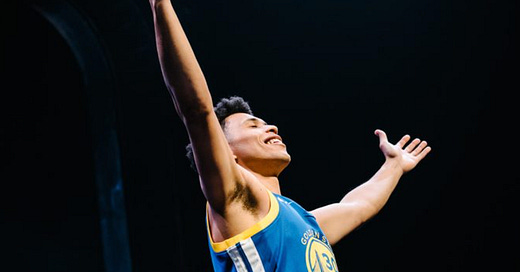What did you think of the show? can be improved upon. Kind of like, What did you do in school today? prompts the respondent to give one of two untrue answers, “I don’t know.” and “Nothing.”
Sometimes you don’t want to lead a person’s response to a play, so a big general question like, What did you think? or Did you like it? seems useful. I asked recent high school graduate and experienced theater-maker Kayla, to write a response to The Halfgod of Rainfall by Inua Ellams. That is basically asking, “What did you think?” She responded with an awesome list of discussion prompts and talking points for students — so when those broad questions fail, I have a whole wonderful arsenal of her thoughts to share.



There is no education guide to The Halfgod of Rainfall, currently running at A.R.T. in Cambridge, MA. Kayla’s response, below, is a great teaser and primer for the show. The thoughts of someone who has only recently left adolescence is an invaluable resource for those of us who want to he…
Keep reading with a 7-day free trial
Subscribe to A Theater-Going Habit to keep reading this post and get 7 days of free access to the full post archives.




